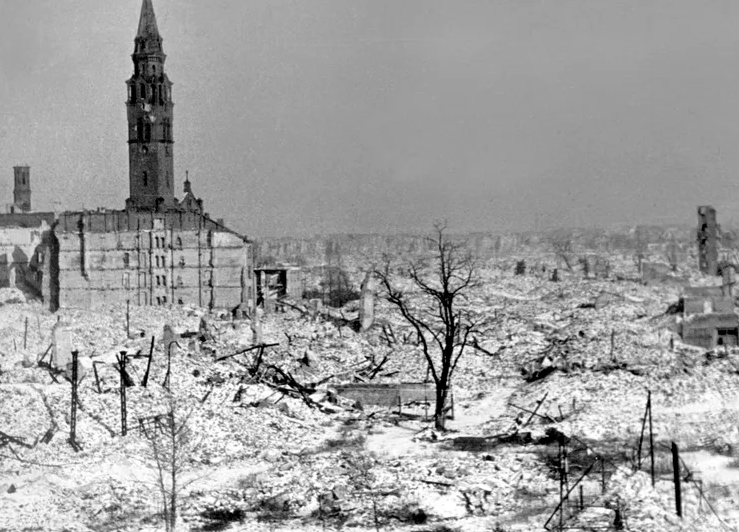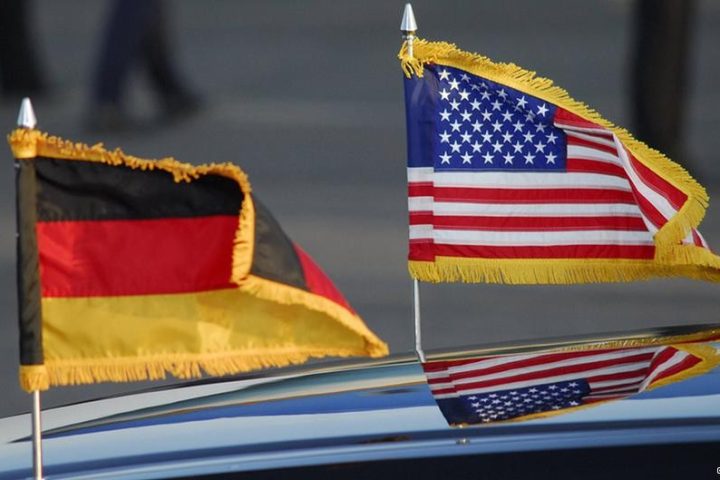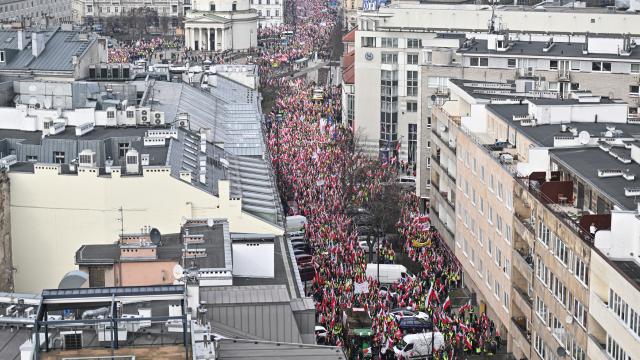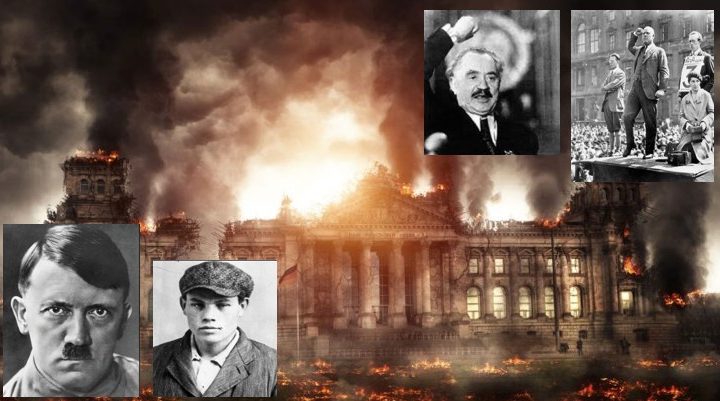- A guest editorial by Mateusz Morawiecki
Nearly 80 years after the end of the war, Poland’s national conservative government is demanding trillions in compensation. Here, the prime minister writes why he sees the Germans as responsible.
On September 1, 1939, the German Wehrmacht invaded Poland. Hitler had previously reached an agreement with Stalin to occupy and divide the country. Immediately after the invasion, terror began not only against the Jewish citizens: systematically the Germans murdered members of the Polish elites – teachers, professors, engineers and clergymen. In 1943, Jews imprisoned in the Warsaw Ghetto rebelled against the Nazis; in 1944, the Polish underground army attempted to liberate all of Warsaw. The Germans brutally crushed both uprisings, blowing up the Polish capital house by house.
Prime Minister Mateusz Morawiecki’s government has calculated the amount of compensation it believes is due at 1.3 trillion euros. It is promoting its cause with its EU partners and the UN. The German government, on the other hand, considers the reparations issue closed and has rejected negotiations. It sees no legal basis for doing so because Poland’s communist leadership at the time had declared in 1953 that it would renounce German reparations.
I read with interest how Germans are also repeatedly dealing with the darker sides of their past. For example, in the current issue of SPIEGEL GESCHICHTE: The article under the title “Arisierung: Die Liquidation” (Aryanization: The Liquidation) describes the carefully planned and rigorously executed expropriation of German Jews between 1933 and 1939. In this way, the National Socialists created the organizational framework for the persecution and murder of the Jews.
The German public – it seems to me – is well aware of what was done to the Jews. Nevertheless, it hardly seems to have penetrated what the Nazis did to Poland as a whole. For in 1939 the murdering and looting really began. The German invasion of our country and the six-year occupation tore a wound that has not healed to this day. We turn to the United Nations, our partners in Europe and, of course, to the Germans to make them aware of this issue.
An entire generation of Polish artists, writers and cultural workers became victims of the totalitarian war machine. Poland’s vast cultural output was irretrievably lost. It disappeared along with thousands of looted works of art, with dozens of monuments razed to the ground, with stolen paintings, smashed sculptures, in burned libraries and archives, in plundered museums, in the ruins of Polish cities and towns.
Behind each of these lost works of art there is a person with his education, skill and creativity. Culture, intellectual and artistic creation, is the thread that nations weave through the centuries and that holds them together – and that is precisely what the Nazis’ total war was aimed at: Poland was to be wiped off the face of the earth, its memory erased. The goal was complete destruction.
The occupation of Poland by Germany and the systematic genocide caused immeasurable suffering and material and immaterial losses. As a result of the Second World War, 5.5 million people died or disappeared in Poland. 21 percent of them were children under the age of ten. 3.7 million of these victims died in the death camps alone.

From the beginning of the occupation, the Germans claimed works of art in public and private collections as war booty. The first organized looting took place as early as October 1939; the Germans had works of art, such as paintings, books, and sculptures, shipped from Krakow to the Reich. In addition to public cultural institutions, private collections were also looted. The occupation authorities as well as private individuals took part in this raid; Wehrmacht soldiers, for example, stole jewelry or paintings from the Poles.
The occupiers terrorized and murdered hundreds of thousands of artists, scientists, teachers and writers. In the course of the so-called “intelligentsia action” against the Polish ruling class, the state lost half of its lawyers, 40 percent of its doctors, 20 percent of its university professors – a total of about a hundred thousand people.
Towns and villages, the historical architecture, were demolished. Warsaw is the city in Europe that was destroyed the most during World War II. The Polish capital lost 92 percent of its historic buildings.
The “Report on Poland’s War Losses as a Result of German Aggression and Occupation during World War II,” published last year, describes the actual extent of the material damage suffered by Poles during the German occupation: The sum of these Polish losses was estimated at more than 6,220,609,000,000 zlotys (about 1.3 trillion euros).
The German occupation was one of the cruelest in European history, depriving at least an entire generation of their future opportunities. Millions of Polish citizens were never compensated for the unimaginable human and material losses they suffered during World War II. We are convinced that the 1953 treaty between the GDR and the Polish People’s Republic is invalid: for at that time the Soviet Union forced a dependent Warsaw government to waive reparations.
Attempts by private individuals to obtain compensation in German courts also failed. The Germans – from our point of view – did not pay compensation for the destruction on Polish soil, nor for the historically unprecedented plundering of their neighboring country.
We know how difficult it is to reach the modern world with this truth. But in relations between people and also between states, truth and justice should be the highest values. In this sense we demand: Our German partners must finally take political, historical, legal and financial responsibility for all consequences of the invasion of our country.





